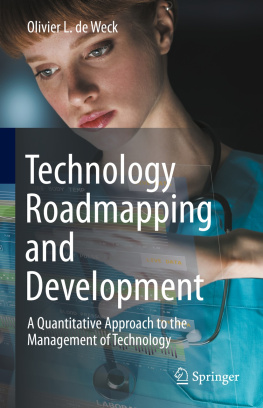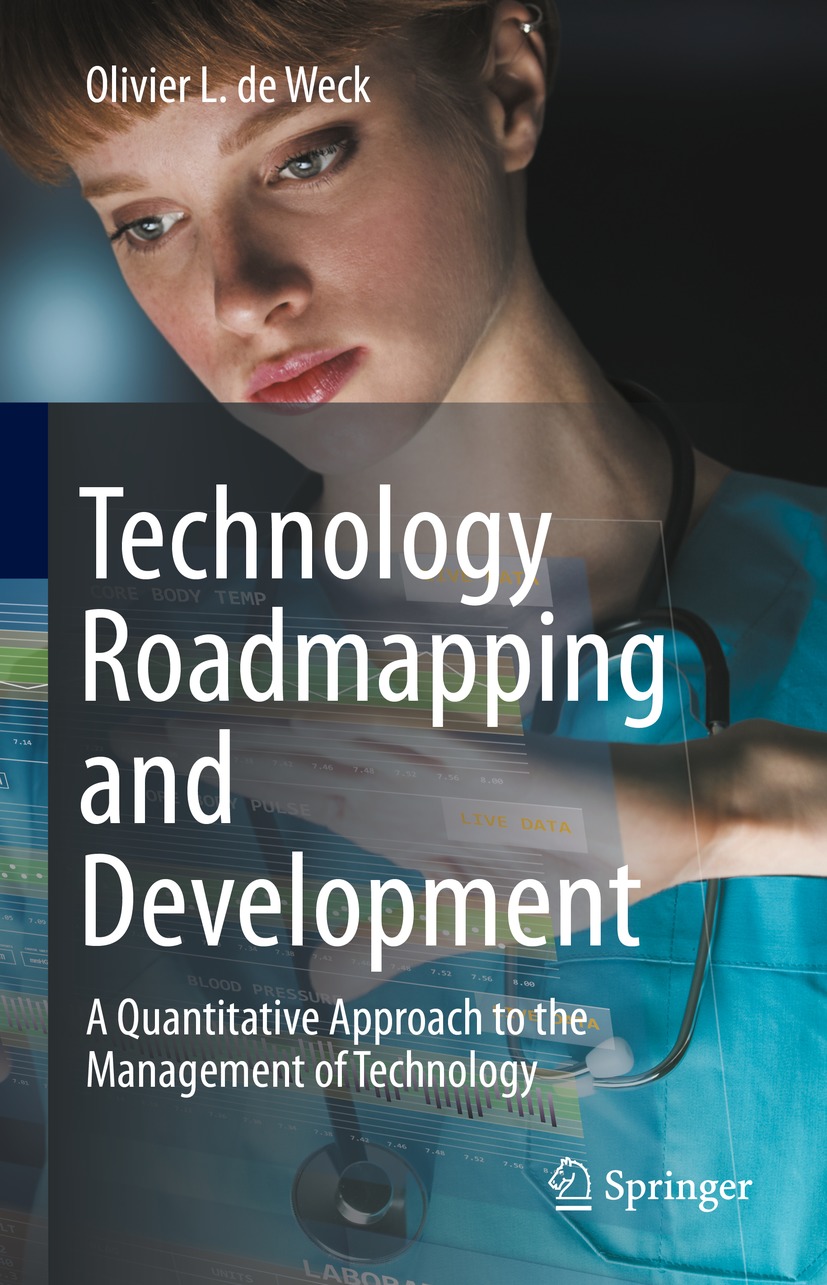Olivier L. de Weck
Department of Aeronautics and Astronautics, Massachusetts Institute of Technology, Cambridge, MA, USA
ISBN 978-3-030-88345-4 e-ISBN 978-3-030-88346-1
https://doi.org/10.1007/978-3-030-88346-1
Springer Nature Switzerland AG 2022
This work is subject to copyright. All rights are reserved by the Publisher, whether the whole or part of the material is concerned, specifically the rights of translation, reprinting, reuse of illustrations, recitation, broadcasting, reproduction on microfilms or in any other physical way, and transmission or information storage and retrieval, electronic adaptation, computer software, or by similar or dissimilar methodology now known or hereafter developed.
The use of general descriptive names, registered names, trademarks, service marks, etc. in this publication does not imply, even in the absence of a specific statement, that such names are exempt from the relevant protective laws and regulations and therefore free for general use.
The publisher, the authors and the editors are safe to assume that the advice and information in this book are believed to be true and accurate at the date of publication. Neither the publisher nor the authors or the editors give a warranty, expressed or implied, with respect to the material contained herein or for any errors or omissions that may have been made. The publisher remains neutral with regard to jurisdictional claims in published maps and institutional affiliations.
This Springer imprint is published by the registered company Springer Nature Switzerland AG
The registered company address is: Gewerbestrasse 11, 6330 Cham, Switzerland
Foreword
If you want to spend a million dollars to develop a specific technology or system, you have a myriad of methodologies and tools at your disposal to help plan and execute your project. You might employ, for instance, design thinking, agile, waterfall, systems engineering, model-based design, TRIZ, axiomatic design, and any number of design and project management tools. If you want to spend a billion dollars on a portfolio of technologies, you are pretty much on your own. Not only is there a dearth of sound theoretical work on the subject of technology planning at scale, but the state of practice is remarkably primitive. If you want to spend a trillion dollars over the course of decades, you are in largely untrodden territory.
Turns out, we, as a species, are not very good at technology planning. The most celebrated technological featsthe Manhattan Project, the Apollo Program, and the iPhoneare renowned for their rapid execution and narrow focus. There have been long-term projects toothe pyramids and the cathedralsbut these took place in times of minimal technological change. Long-term, diverse technology portfolios do not have a good track record. For instance, the U.S. Department of Energy invested about as much as the Manhattan Project and Apollo Program combined (adjusted for inflation) over 35 years into the decarbonization of the US economy with few visible results.
In my career, I had the opportunity to observe up close technology planning in the Pentagon and in the Silicon Valley venture ecosystem. I was also responsible for a $3 billion/year R&D portfolio at United Technologies and 1 billion in annual technology spending at Airbus (a journey on which this books author joined me). While at DARPA, I led an unusual (even for DARPA) initiative called the 100 Year Starship, in which we studied how to organize a multi-decade investment in the broad set of technologies needed to travel to the nearest star. While interstellar travel may seem far-fetched and whimsical as a use case for technology planning, the resources and time scales involved are not so different from those needed to decarbonize the world economy, for instance. I had a few battle scars and takeaways from these experiences.
First, the approach to technology planning is usually qualitative and lacking in rigor. This is especially apparent when you compare it to the increasingly sophisticated analysis, modeling, and experimentation used in actually executing technology projects and combining multiple technologies to build systems and products. Almost every organization professes to practice roadmapping to inform its technology planning. Most of these roadmaps arein a term of art I learned from former DARPA head Regina Duganswooshy. They comprise a fat arrow (a swoosh), going from the lower left (bad) to the upper right (good), along an x-axis that loosely corresponds to the passage of time and a y-axis that vaguely represents some unitless measure of progress, with a series of projects enumerated along the swoosh. This kind of roadmap has minimal descriptive value (it is essentially a list of projects) and no prescriptive value whatsoever to help make decisions about which projects should be undertaken, when, and why. Instead, these decisions are made largely through a combination of intuition, opinion, politics, quid pro quos, and fads.
What this conceals, of course, is the fact that every organization operates with constraints, including a finite R&D budget to invest in its technology portfolio. In whatever manner decisions are made, they represent a ranking of possible projects, with some getting funded and others cut. A real roadmap makes this process explicit, which can be uncomfortable. It exposes the tradeoffs being made. It pits near-term revenues versus long-term growth and risk versus returns. It forces the choice between low-risk, incremental improvements to existing products and high-risk technology bets with potentially revolutionary but uncertain outcomes.
Second, time horizons for technology planning are typically very short: one or two years. This is a byproduct of annual budget cycles, which are ubiquitous both in industry and government. Each budget cycle provides an opportunity to re-plan, particularly as new stakeholders come with different opinions and new priorities. So even if there is a longer-term plan, there is frequent opportunity to deviate from it. While this can be helpful in adapting to lessons learned and changing circumstances, it is generally counterproductive to making progress toward long-term goals. The Pentagon attempts to counteract this through a 5-year planning process. Many companies likewise create multi-year plans. However, since both Congress and corporate boards typically approve budgets on an annual basis, the longer-term planning process is largely a pro forma exercise.
Third, there is a frequent failure to recognize the exponential nature of technological progress. In part, this is because the planning intervals are so short that changes in technology look locally linear. It is also because humans are notoriously bad at conceptualizing exponentials. By the time the exponential becomes perceptible, it is usually too late. History is littered with carcasses of companies that failed to spot exponential technological change. Spotting it is no guarantee of success, however. Exponentials are notoriously sensitive to initial conditions, so it is important to recognize the limits and uncertainties in technology forecasting.











